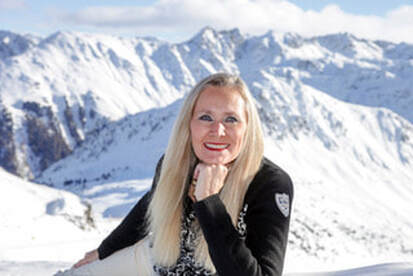I was born July 5, 1963 in Omaha, Nebraska. The Nebraska Children’s Home put me in foster care until I was adopted four months later, in November 1963. I was raised in Omaha and graduated from Burke High School in 1981. I was an exchange student for the summer with Youth for Understanding in Sion, Switzerland, following my high-school graduation. I studied International Relations at the University of Colorado in Boulder, graduating in 1986. I later completed the European Master in Mediation in Valais, Switzerland and created a mediation service for political asylum seekers for the Valais Canton. I received my doctorate in the Social Sciences. I defended my thesis entitled “Conflict Narratives: Mediation Case Studies in an Intercultural Context”, at the University of Tilburg in the Netherlands in 2009.
My postdoctoral work has been in public health research focusing on mental health, immigrant health, and the Senior Living Lab. I am currently teaching at Creighton University in the medical anthropology program within the Department of Social and Cultural Studies. My research and life’s work is devoted to psycho-social accompaniment in the fields of mediation and public health.
My extensive studies and research have allowed me to gain a deeper understanding of conflict and illness in relation to the healing processes at work in our lives. My own transformative narrative describes a real life unfolding of divine synchronicities that allowed me to find reconciliation with my complex identity and web of family relationships. My life-o-gram has become a transformagram.
My story underscores the importance of divine timing in our lives, describing a convergence that brought my sister and me back to our birth family during the summer of 1996. The ineffable mystery of our reunion suggests a form of interrelatedness or connectedness. The awe and wonder that I have experienced is the driving force behind my book, a testimony I have dared to share in the face of exposedness. Synchronicities have been a guiding force in my life. I have balanced raising five children in the Swiss Alps while developing a career as a mediator and social scientist. As an author, I share my story in the hopes that my readership’s lives will be enriched and transformed. My book is an invitation to enter into the questing and futuring process: homing in.
My postdoctoral work has been in public health research focusing on mental health, immigrant health, and the Senior Living Lab. I am currently teaching at Creighton University in the medical anthropology program within the Department of Social and Cultural Studies. My research and life’s work is devoted to psycho-social accompaniment in the fields of mediation and public health.
My extensive studies and research have allowed me to gain a deeper understanding of conflict and illness in relation to the healing processes at work in our lives. My own transformative narrative describes a real life unfolding of divine synchronicities that allowed me to find reconciliation with my complex identity and web of family relationships. My life-o-gram has become a transformagram.
My story underscores the importance of divine timing in our lives, describing a convergence that brought my sister and me back to our birth family during the summer of 1996. The ineffable mystery of our reunion suggests a form of interrelatedness or connectedness. The awe and wonder that I have experienced is the driving force behind my book, a testimony I have dared to share in the face of exposedness. Synchronicities have been a guiding force in my life. I have balanced raising five children in the Swiss Alps while developing a career as a mediator and social scientist. As an author, I share my story in the hopes that my readership’s lives will be enriched and transformed. My book is an invitation to enter into the questing and futuring process: homing in.
Read my publications on my academic website. As a social scientist I do needs assessment research using narrative methods for social transformation. The Narrative Model of Mediation and social constructionist approaches have guided my work.
Click here to check out my website:
Click here to check out my website:
Website designed by Signed Books and Stuff
